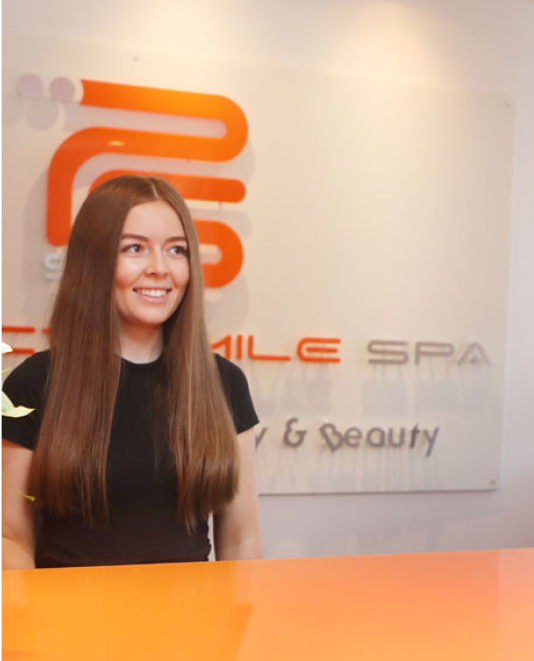Possibly the most popular cosmetic dentistry treatment, veneers have given tens of millions of people the smile they want in just a few visits. However, many patients who visit us believe that it’s normal to have teeth shaved before veneers, which isn’t true!
Traditionally, teeth had to be prepared to accommodate veneers using invasive teeth filing techniques, but over recent years, technology and materials have advanced making it possible (in some cases) not to prepare your teeth. Fortunately, this means less invasive procedures to achieve that perfect smile.
With that being said, we often see many patients for emergency dental treatment after they have visited a dental clinic elsewhere to have their teeth shaved down by another clinic. This has become a growing trend, with more and more Brits heading over to different countries to have this treatment carried out very cheaply.
Unfortunately, we do strongly advise against travelling abroad to get veneers in Turkey or any other countries outside of the UK who offer this service for a fraction of the usual cost. It goes without saying, treatment to reverse damage caused by poorly fitted veneers and shaved teeth can be more costly than having the veneers fitted by a professional dentist.
In this article, we discuss the different options available today such as no-preparation veneers, composite veneers, Lumineers and porcelain veneers.
Composite Veneers
What is a composite veneer? A composite veneer is made of a composite resin filling material. It is placed over the entire front surface of the tooth to improve its aesthetic appearance and changes the tooth height, shape and shade.
Composite veneers are great at improving many dental problems, including:
- Chipped teeth – can be fixed with composite veneers
- Misshapen teeth – composite veneers can improve the shape of your teeth and hide ‘ugly’ teeth
- Crowded teeth – If teeth are out of line or too close together, composite veneers are an alternative to orthodontics or braces.
- Gappy teeth – composite veneers are great at closing gaps between teeth. Teeth proportions can be made perfect.
Advantages of Composite Veneers
Composite veneers require either no or minimal tooth preparation, such as tooth filing, to ensure you conserve as much tooth as possible. They are also a cheaper alternative to porcelain veneers. Only one appointment is needed if you decide to go ahead with composite veneers, making it the most practical option if you live a busier lifestyle.
Disadvantages of Composite Veneers
Due to the composite resin material, composite veneers are likely to stain easily especially if your diet consists of curry, red wine etc. Composite veneers do not last as long as porcelain veneers, so wear and tear is likely to occur.
How Long Do Composite Veneers Last?
The longevity of composite veneers depends on many factors; the type of composite material used (there is a big difference in the quality of different composite materials); the aftercare and habits (i.e. if you continued to drink a lot of fizzy drinks and grind your teeth then this would reduce their longevity). On average, Composite veneers can last between 2 – 5 years.
Cost of Composite Veneers
The cost of Composite veneers varies, so it is important to discuss this with the cosmetic dentist before starting treatment.
Porcelain Veneers
What is a porcelain veneer? A Porcelain veneer is a porcelain laminate custom made to bond to the front surface of a tooth. Porcelain veneers are sometimes compared to false nails as they are very thin cosmetic coverings.
Porcelain veneers are great at improving many dental problems, including:
- Chipped teeth – can be fixed with porcelain veneers
- Discoloured teeth – can be made brighter with porcelain veneers
- Misshapen teeth – porcelain veneers can improve the shape of your teeth and hide ‘ugly’ teeth
- Crowded teeth – if teeth are out of line or too close together, Porcelain veneers are an alternative to orthodontics or braces.
- Gappy teeth – porcelain veneers are great at closing gaps between teeth. Teeth proportions can be made perfect.
Advantages of Porcelain Veneers
Porcelain veneers require minimal tooth preparation; hence you conserve as much tooth as possible. Porcelain veneers look very natural and most times much better than what was there before.
How Are Teeth Prepared for Porcelain Veneers?
Normally, between 0.5mm – 0.7mm of a tooth is adjusted to give room for the porcelain veneer to fit the tooth surface. Tooth preparation depends on how the teeth are originally positioned. Sometimes teeth need no preparation, and at other times may need a degree of teeth filing to correctly shape the teeth.
After the preparation, a mould is taken and temporary veneers are made. You then return approximately two weeks later to have the porcelain veneers bonded to your tooth/teeth. Porcelain veneers usually take two visits to complete.
Cost of Porcelain Veneers
The cost of Porcelain veneers varies, so it is important to discuss this with the cosmetic dentist before starting treatment.
How Long Do Porcelain Veneers Last?
Porcelain veneers can last you many years. This depends on your hygiene, diet and the health of your existing teeth. Also whether you clench or grind your teeth.
No-Preparation Veneers
What are no-preparation veneers? Also commonly referred to as ‘prepless’ veneers, no-preparation veneers are a more conservative cosmetic treatment which means you don’t have to be numbed up! It means you won’t have the numb feeling long after you leave the practice.
During traditional veneer preparation, minimal tooth structure (enamel) is adjusted which in very rare cases can lead to temporary sensitivity. No-preparation veneers mean no tooth structure is removed and no teeth filing is performed, reducing the risk of sensitivity making this treatment comfortable and even enjoyable!
As the enamel is not adjusted, the bond between your existing teeth to the new veneers is incredibly strong due to the bonding materials and technique we use during the fitting.
No-preparation veneers are the perfect solution for nervous patients considering cosmetic dentistry. Injections and drilling are the usual fears our nervous patients have – so this quick and simple procedure is the perfect solution!
Lumineers
What are Lumineers? Lumineers are extremely thin veneers created by Cerinate. They will enhance your smile by covering gaps and improving the appearance of misshapen, stained or worn-down teeth. The treatment takes between two and three weeks and will leave you with a smile you are no longer ashamed to show.
Unlike traditional veneers, Lumineers are created using a special patented material called Cerinate porcelain. While it is known for being very strong, Cerinate porcelain is also exceptionally thin – so thin, in fact, that Lumineers have been compared to contact lenses.
The unique strength and size of Lumineers mean that, unlike other veneers, they can be used with very little or no tooth preparation, so you can improve your smile without tooth shaving or grinding.
How Can We Help?
After the consultation and examination with our cosmetic dentist, we will determine which veneers treatment is best suited to you. Once all options have been discussed, we can complete your composite veneers in a very short time.
Perfect Smile Spa based in Hornchurch Essex is a leading cosmetic dental practice and is dedicated to PAINLESS dentistry. Our cosmetic dentist has fitted thousands of veneers over the last 24 years.
Call us for a free consultation on 01708 398 775 or email care@perfectsmilespa.co.uk
Common Myths of Shaving Teeth Before Veneers was last modified: December 16th, 2020 by Dr Jas Sagoo




 132a High Street
132a High Street 01708442114
01708442114  care@perfectsmilespa.co.uk
care@perfectsmilespa.co.uk


